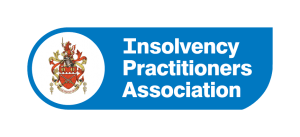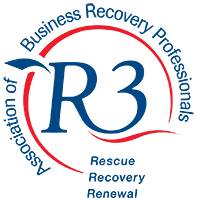Am I able to access new credit during my arrangement?
If you’re currently in an Individual Voluntary Arrangement, it can be more difficult to access credit.
An IVA requires you to focus most of their income on payments towards your debt, meaning it can limit your ability to borrow. In this article, we look at what credit is, common examples of credit, and how an IVA might impact your ability to access it.
What is credit?
Credit is the ability to borrow from a lender, company, or individual, and pay the money back later. The lenders, companies, or individuals you borrow from are referred to as creditors, and you will be able to get credit so long as you agree to repay creditors on their terms – which usually means with interest and charges added.
Your ability to get credit is determined by your credit score – a three-digit rating that demonstrates your creditworthiness. The higher your score is, the higher the likelihood of lenders accepting you in the future, whether it’s for credit cards, payday loans, or other financial services.
You can check your credit score via credit reference agencies – independent bodies authorised and regulated by the Financial Conduct Authority (FCA) .
What are some common examples of credit?
Any situation where people borrow funds for goods and services, and come to an agreement with the provider to repay the debt later, can be considered taking out credit.
Borrowing money in this way is common-place, so there is a good chance you have taken credit from a company or provider already. Some of the most common forms include:
- Consumer credit (Like credit cards, or other any personal debt taken on)
- Mortgages
- Bank loans
- Car finance
The above examples fall into the category of ‘good credit’ – where you need to take on new credit in order to generate the money you need to move forward in life.
But it’s important to remember it’s still debt – take on too much and you can fall behind with payment, hurt your credit score, and find yourself turning to debt solutions like IVAs.
Can you get credit while in an IVA?
Yes, but it’s complicated. You can borrow money during an IVA, but if you want to borrow more than £500 you must make sure to ask permission from your Insolvency Practitioner (IP) – a debt professional, often appointed by the Insolvency Service, who will handle your debt arrangement.
If you apply for more than £500 without your IP’s permission, you will breach the terms of your IVA, and it might fail. If your IVA fails, you will need to find alternative solutions to repaying your debts, as the debts you carried into the agreement will remain unpaid.
If you need to borrow during the course of an IVA, seek debt advice first – juggling IVA payment and new debt can leave people in financial difficulty, leave a black mark on their credit report, and even lead to insolvency.
How do I get further credit during an IVA?
You can’t reach out to a lender without the permission of your Insolvency Practitioner. When your IP is considering whether to grant you permission to obtain credit, they will consider factors like:
- Whether it’s necessary
- How long it will take you to repay
- Whether you can repay the provider on top of your current IVA payments
If you fail to get in touch with your IP first, you may breach the terms of your IVA and have to arrange a new debt repayment method.
Find a lender
Even if your IP approves, you might struggle to find a credit provider. The details of your IVA are public – they will be recorded on both the Individual Insolvency Register and your credit report.
Potential creditors can use Experian, or another body approved by the Financial Conduct Authority, to search your financial history. If you have a low credit score, they may either refuse you, or offer you higher interest rates that threaten to increase your debts further.
Can I borrow money to make my IVA payments?
If you feel that you must resort to credit to cover day-to-day costs during the course of your IVA, it is a better idea to get in touch with your IP instead of accessing further credit. You could try:
Adjusting your budget
It could be that your proposed budget isn’t working, and you may be able to lower your monthly payments.
Asking for a payment holiday
IVAs do allow some flexibility, and you may be able to skip payments for a month or two. When this happens, the payments are simply added to the end of your IVA plan, making it last a little longer.
Can I get a loan to pay off an Individual Voluntary Arrangement?
Many people use a lump sum to settle their IVA early, but not everyone has that kind of money to hand. That’s why people are sometimes interested in the idea of taking a loan to pay off their IVA.
Being accepted for a loan during your IVA will be difficult, but it’s not impossible. There are companies out there, like Sprout Loans, for example, who specialise in IVA early settlement loans.
The allure of these loans is that they shorten the term of your IVA, but they often charge higher interest, and can cause serious money issues for those who struggle to repay.
You should research any IVA settlement loan company thoroughly before making a decision – either through their website or reviews. You will also need to get your Insolvency Practitioner’s approval to go ahead, be at least halfway through your IVA, and be up to date with payment.
Can I get a credit card with an IVA?
As with any other form of credit, getting a credit card is more difficult if you have an IVA – but not impossible.
Lenders may not be willing to offer you their best rates, while some may reject you outright, but the ability for IVA holders to access a credit card has increased over the years.
That being said, you will need permission from your IP to make the application, and if you can afford to, it’s best not to take out extra credit during the course of your debt repayment plan.
How does an IVA impact your credit rating?
It stays on your credit file
A record of your IVA will remain on your credit file for six years from its start date. This means that, in a standard 60 month IVA, it will drop off your credit file about a year after you make your final payment.
You will need to rebuild your credit score
It is a good idea to request a certificate of completion when you finish your IVA, to provide proof that you satisfied its terms. You can then share the certificate with Experian and the other reference agencies, as well as future lenders.
Can I get finance after an IVA?
Because of the negative impact an IVA can have on your credit score, it can be difficult to get credit even after it’s finished, so you should wait until the IVA has dropped off your credit file before applying if you can.
You can begin to repay your credit by ensuring bills are paid on time and considering a credit-building card. If you need to borrow sooner, approach a credit union rather than high street lenders. Credit unions can also be a better source of credit during the course of your IVA.
How does an IVA affect your life?
An IVA is a big commitment. In the short term, it will involve you limiting your spending in order to focus on debt repayment.
In the longer term, having an IVA will leave a mark on your credit profile, and you may experience difficulty accessing new forms of credit – for mortgages, loans, or credit cards – for a few years afterwards.
Despite that, the positives outweigh the negatives. Your IVA will allow you to settle your debts, write off the debts you can’t afford, and look forward to a future free of money worries.


